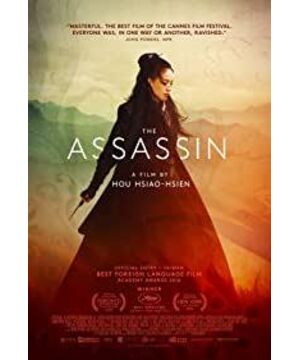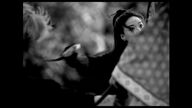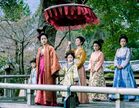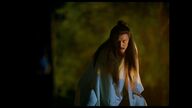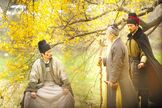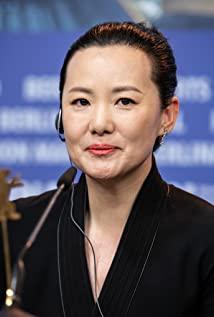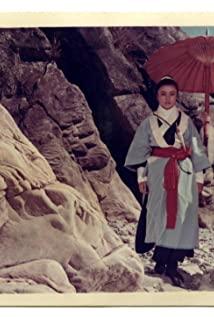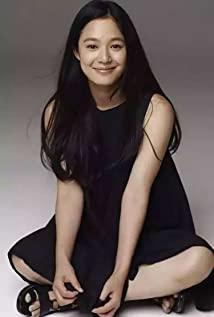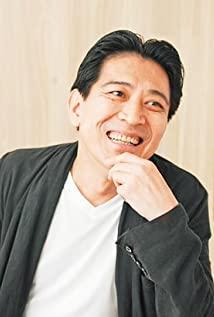Watching the script and movie for the first time, there is not much obstacle to understanding. Nie Yinniang and Tian Ji'an's childhood love, Nie Yinniang's sympathy for Hu Ji, and Tian Ji'an's loneliness, have been linked in a few strokes. The remaining void was filled by Nie Yinniang's tears and Tian Ji'an's fury.
On the other hand, the mirror-grinding youth and Nie Yinniang were indeed not ready for the first line. But this is not the fault of cutting the script, but the wife and husband Mu Cong's temperament is not as good as the camera. (For example, the depth of field of a mirror when the boy in sunglasses heals Nie Yinniang should be deeper.)
In my opinion, the script disclosed on the Internet a few days ago is not a good script, and to put it bluntly, it is still obsessed with a spectacle show. The two excerpts are as follows:
"Kongkonger appeared at Orchid's bedroom, struck by lightning like a ghost, and slashed at Orchid's neck on the couch, scand! The jade ring on Orchid's neck was broken. Kongkonger disappeared. Orchid got up, It turned out to be Yinniang."
"After a moment, the Taoist girl stopped and stood still. Looking at Yinniang, she walked straight out of the Taoist temple without looking back. Sadness and joy, a large area of red, quickly rendered out in front of the Taoist girl's white dress, like a branch of beauty. Put the peony."
If these paragraphs were filmed, it would be just another "Hero". Hou Hsiao-hsien's choice of script is unique. Hou's "hidden" means being a magnanimous person, with respect from a distance. The "hidden" in the script is a villain who blindly flatters the legend.
Between the real and the fantasy,
Zhu Tianwen said in the article, "In the past, he threw the paperwork of the script to me and couldn't wait to go to the scene... Now, it is the Tang Dynasty. The Tang Dynasty, which no one has seen, seeks the unknown for the unknown. , where is the scene? Where is the real Tang Dynasty outside the frame?"
In this film, the characters did not establish a good interaction with the environment, especially the indoor scene. Crowd scenes were originally one of Hou Hsiao-hsien's signatures, but the group performances such as court ministers were extremely bad, and the rankings and movements were too tight and boring.
In terms of scenery, it seems to be limited by the scenery, and the performance environment is not enough. A more obvious example is Princess Jiacheng playing the piano, medium shot, not enough loneliness. The back-and-forth interspersed with the Yinniang picture also seems cliché. This kind of scene processing is also the best. In "The Man from the Wind Cabinet", Niu Chengze was watching the movie, and the scene of his father playing baseball suddenly appeared on the screen. In the distant view, the sky was gloomy. Suddenly, it hits the heart. In contrast, Fuqin's handling is too fanciful and not powerful enough.
Another scene where she goes into a rut is near the end of the film, when Yinniang goes to the top of the mountain to report to the master. Master is independent of the mountain corner, and the mountain fog keeps rising from behind. This scene is very exaggerated in terms of scene selection and camera position. Since Master has his back to Yin Niang, he must have expected it. Why is it uneasy to sit in Taoism, which echoes the title of the film. (Actually, that's what it says in the script).
Between the real and the fantasy, the fantasy fell.
Photography and quality control
Contrary to everyone's opinion, I don't think the photography of this film is good. Zhu Tianwen also did say, "The highly acclaimed photography and art are the two groups of resistance that most troubled Hou Hsiao-hsien during the filming process. It would not be an exaggeration to say that the film's performance was the final outcome of Hou Hsiao-hsien's struggle against these two forces. " In the
indoor play, the moonlight and sunlight piercing through the window are too low in temperature, and the artificial traces are too heavy, which is far less natural than "Flowers on the Sea". This also caused the interior and exterior to feel broken.
On the moving mirror, there are some more outdated treatments, such as one shaking from the sky and one rising from the corridor floor. In Hou's films in the past, the characters were full of energy, and the camera was covered with a veil with slow motion. Now the movement of the camera is more than the characters, and the melancholy is forced.
There are also multiple jumps in the color control of the entire film. The noise of individual shots is poorly controlled, and uncontrolled graininess is ineffective graininess. Film shooting is not about money and willfulness, but about quality control, not putting the cart before the horse.
When Li Pingbin collaborated with Chen Yingxiong, he devoted much better photography. Although his previous collaboration with Hou was not as grand as this one, it was much more appropriate.
Supplement
Shu Qi is beyond reproach, that is, there are dramas, and she can fully take on this role.
Nie Yinniang and her father, the roof of the house where the mirror-wearing teenager rested was made by CG. I don't know why the moss color is so fresh and eye-catching.
View more about The Assassin reviews


